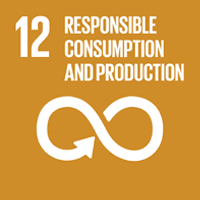BINUS University goes beyond its campus borders by extending its reduce, reuse, recycle policies to organizations and companies that collaborate with the university. This initiative encourages everyone in the campus area, including staff, guests, students, and lecturers, to adopt sustainable practices, such as bringing their own reusable drink bottles and bags. Waste management is streamlined with separate bins for organic and inorganic waste, facilitating more effective waste disposal.
Furthermore, prospective suppliers seeking collaboration with BINUS University are required to align with environmental sustainability principles, a condition outlined in the vendor guidelines (Page 5, Point 2.1.1 – No 11). This commitment to sustainability not only reflects BINUS University’s dedication to the Sustainable Development Goals (SDG) but also fosters a collaborative network that prioritizes environmental responsibility.






